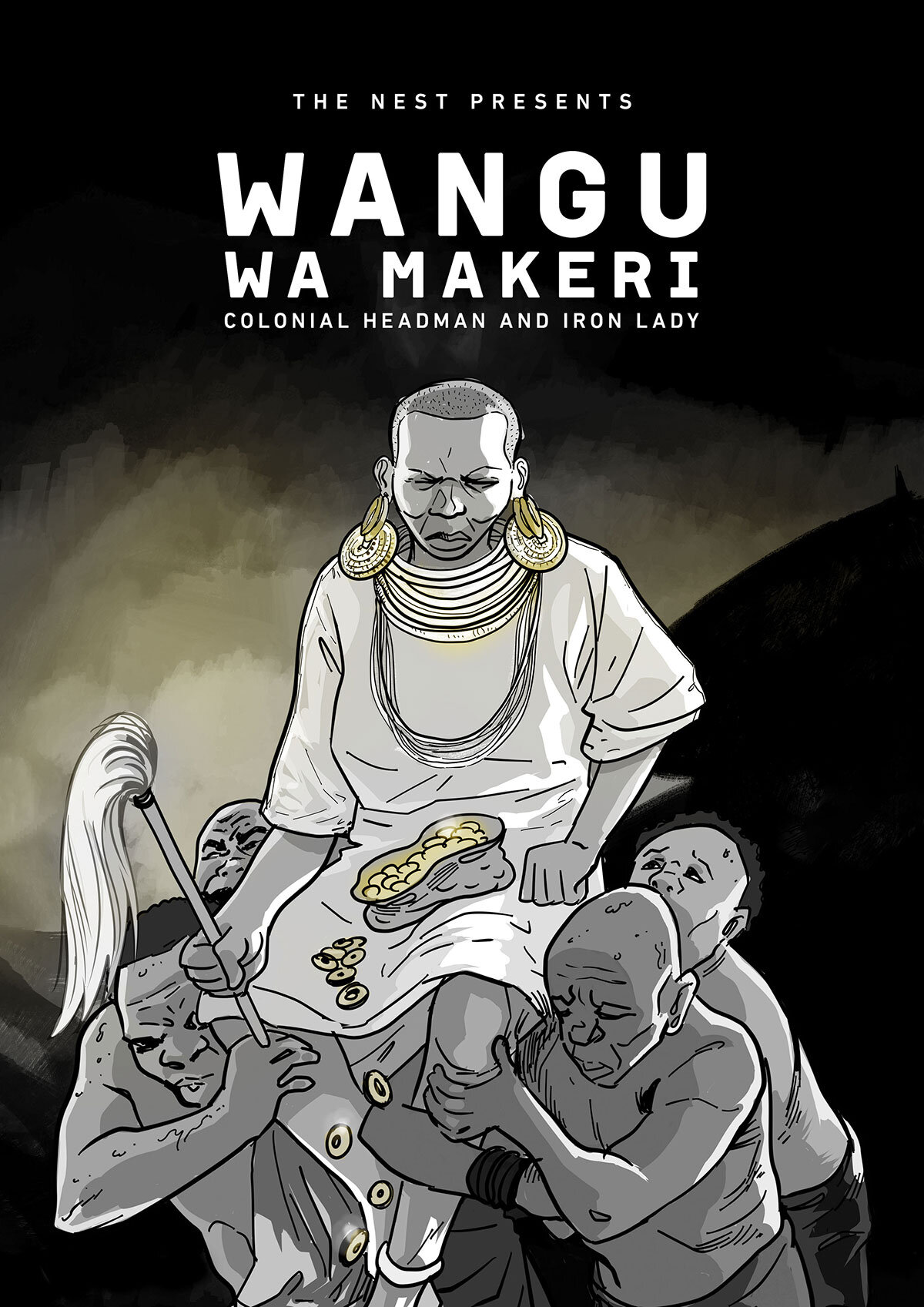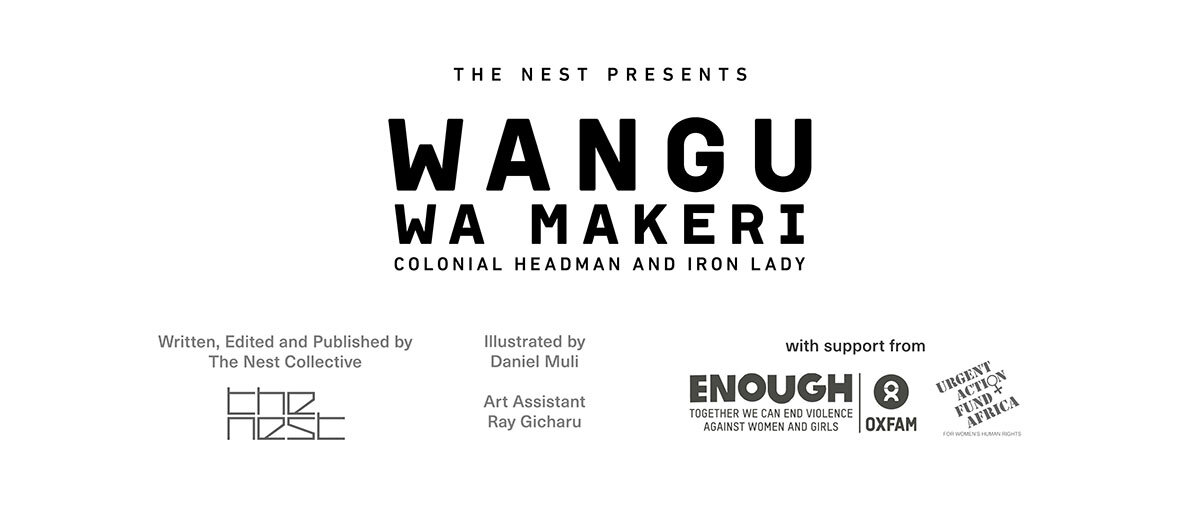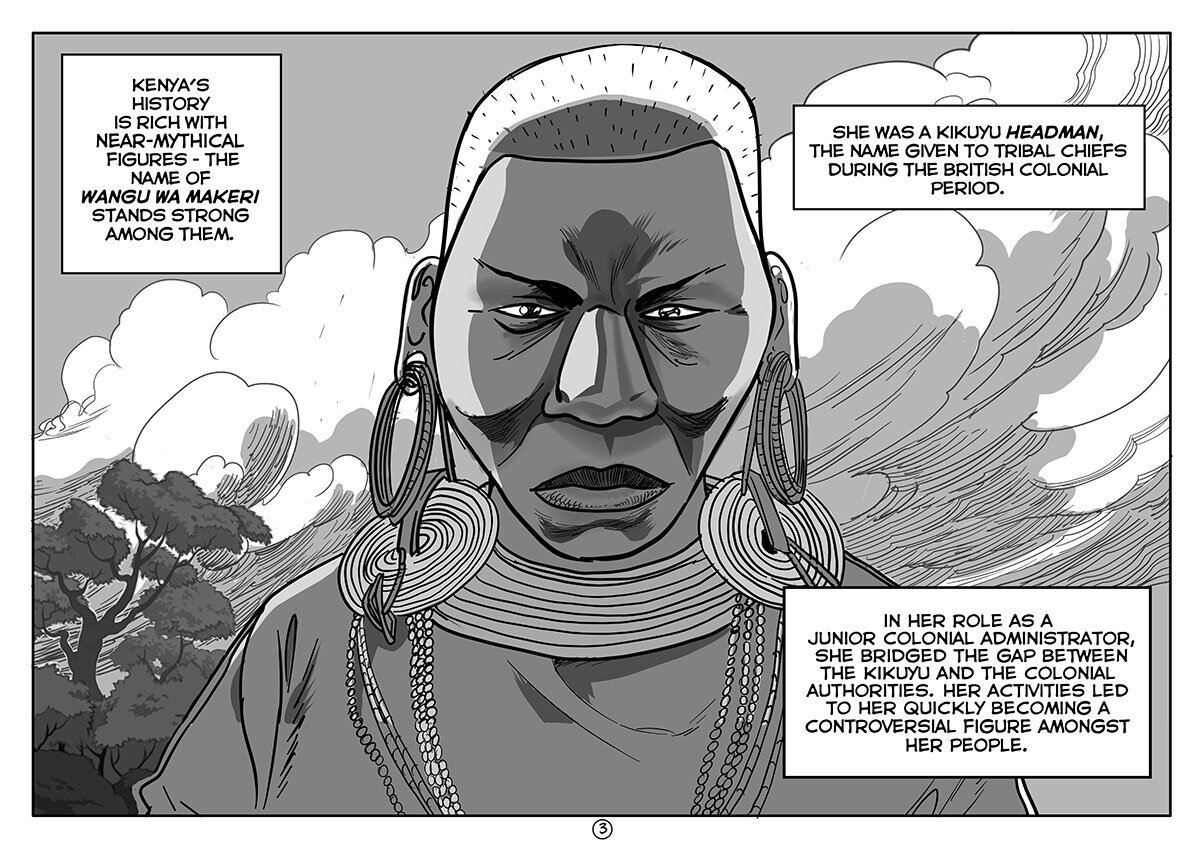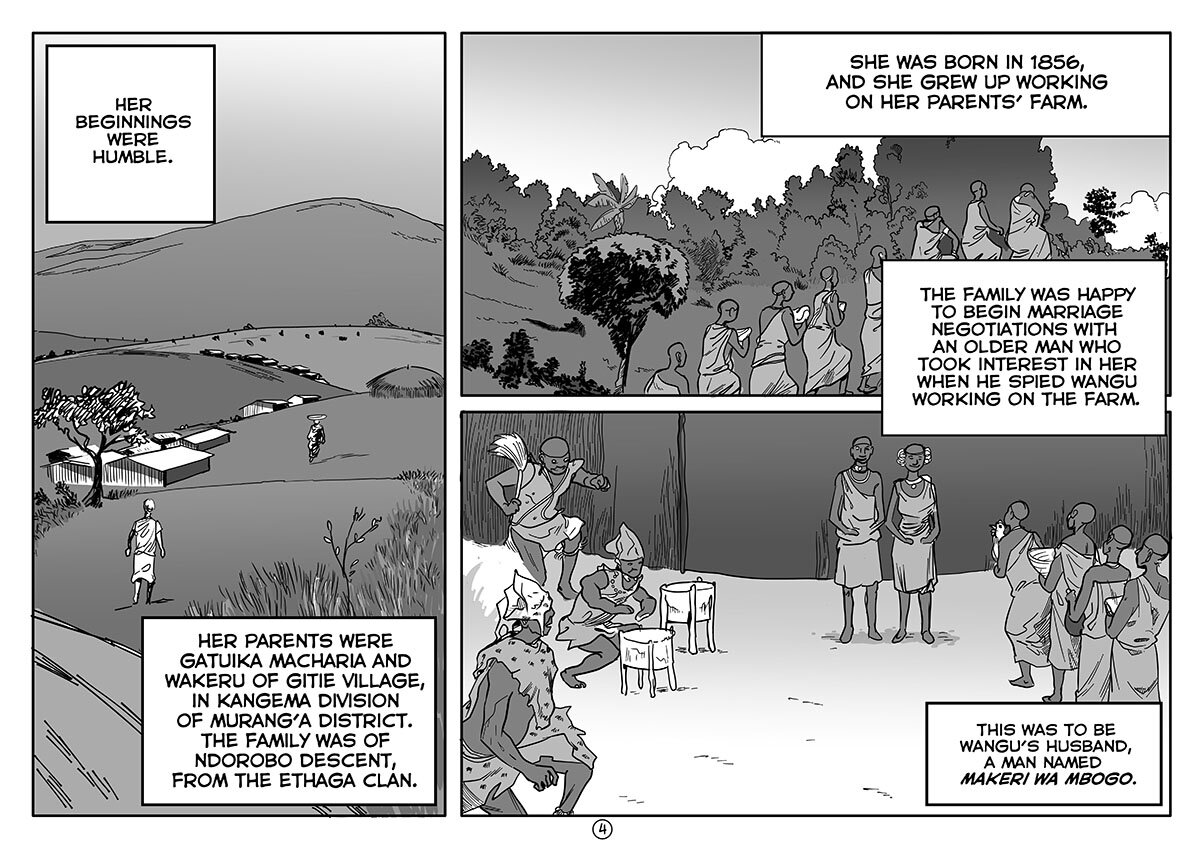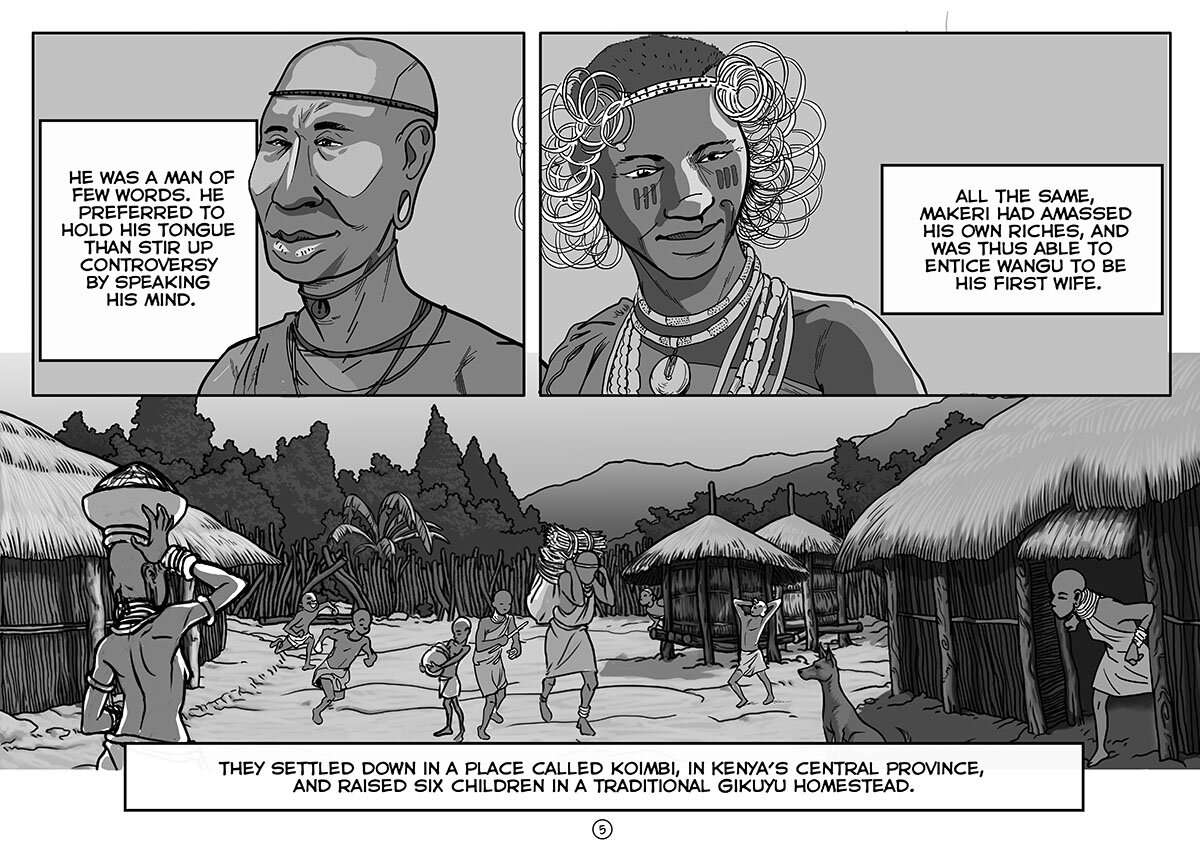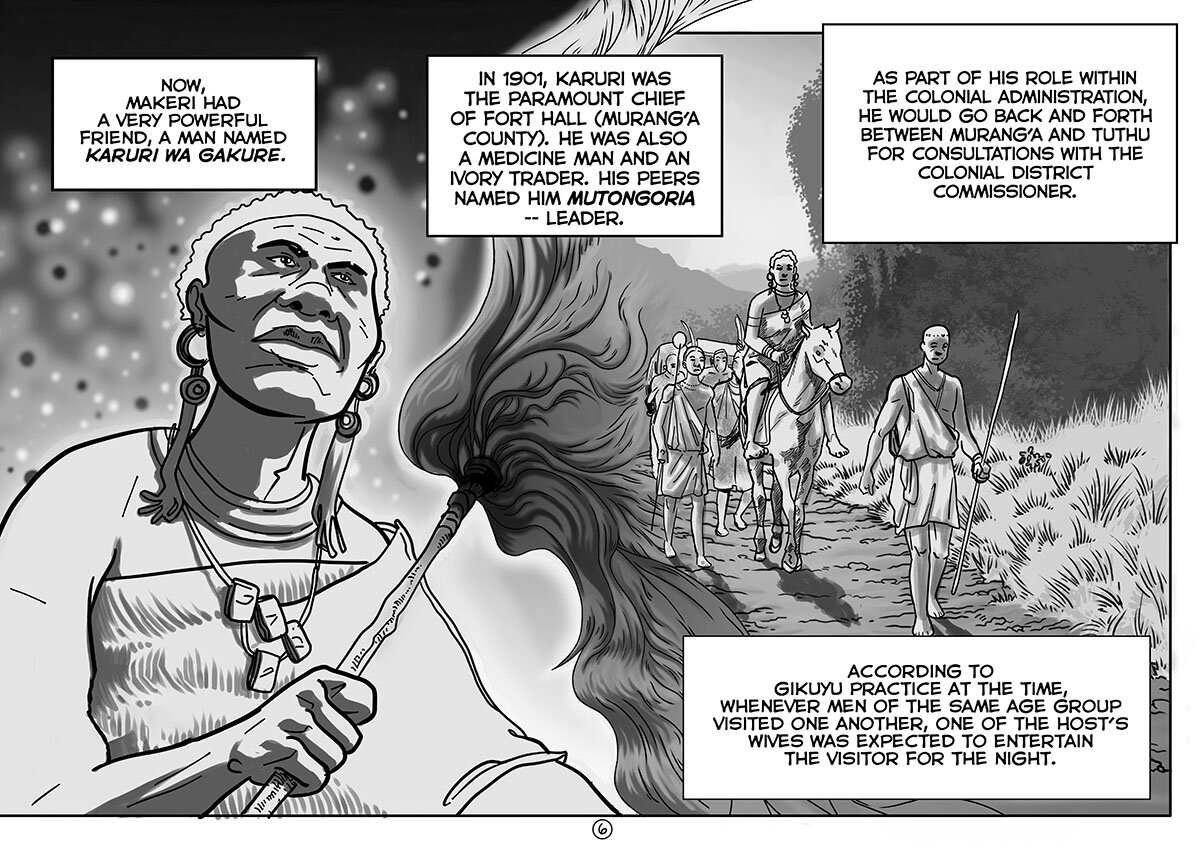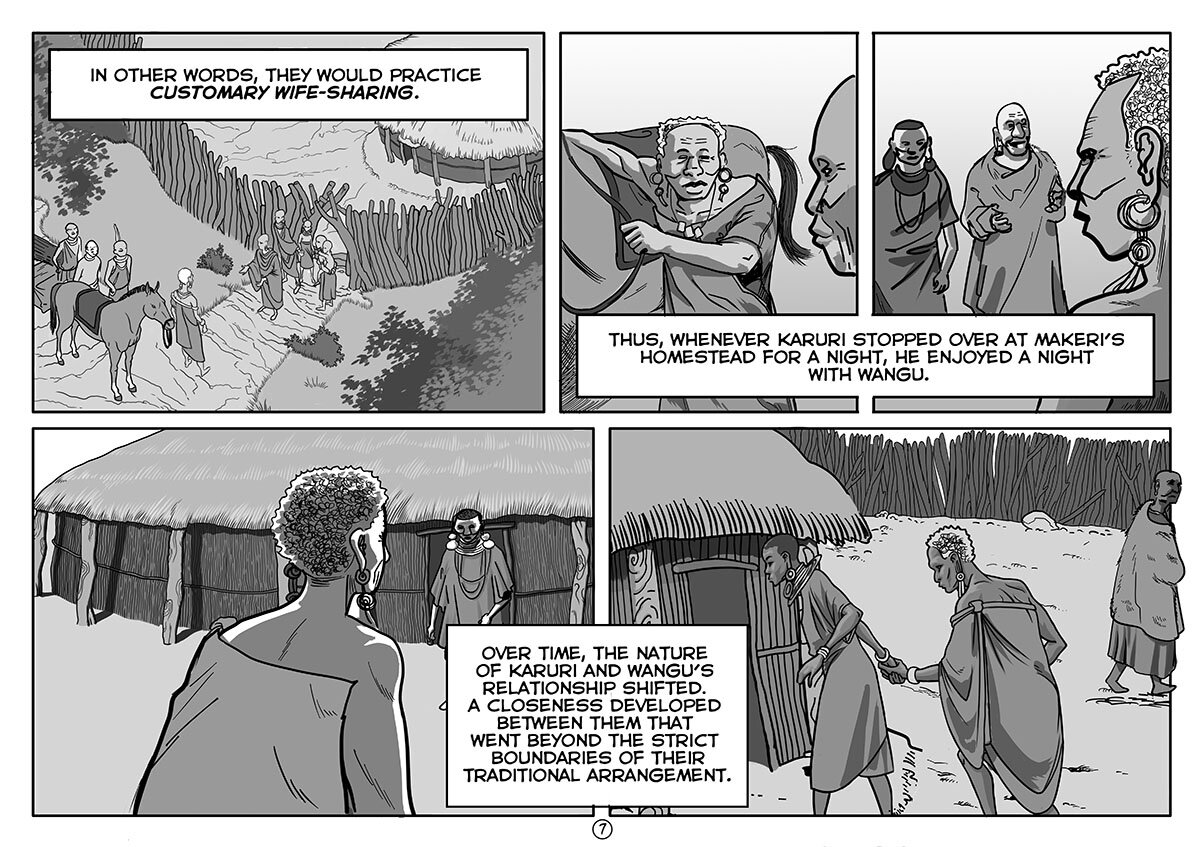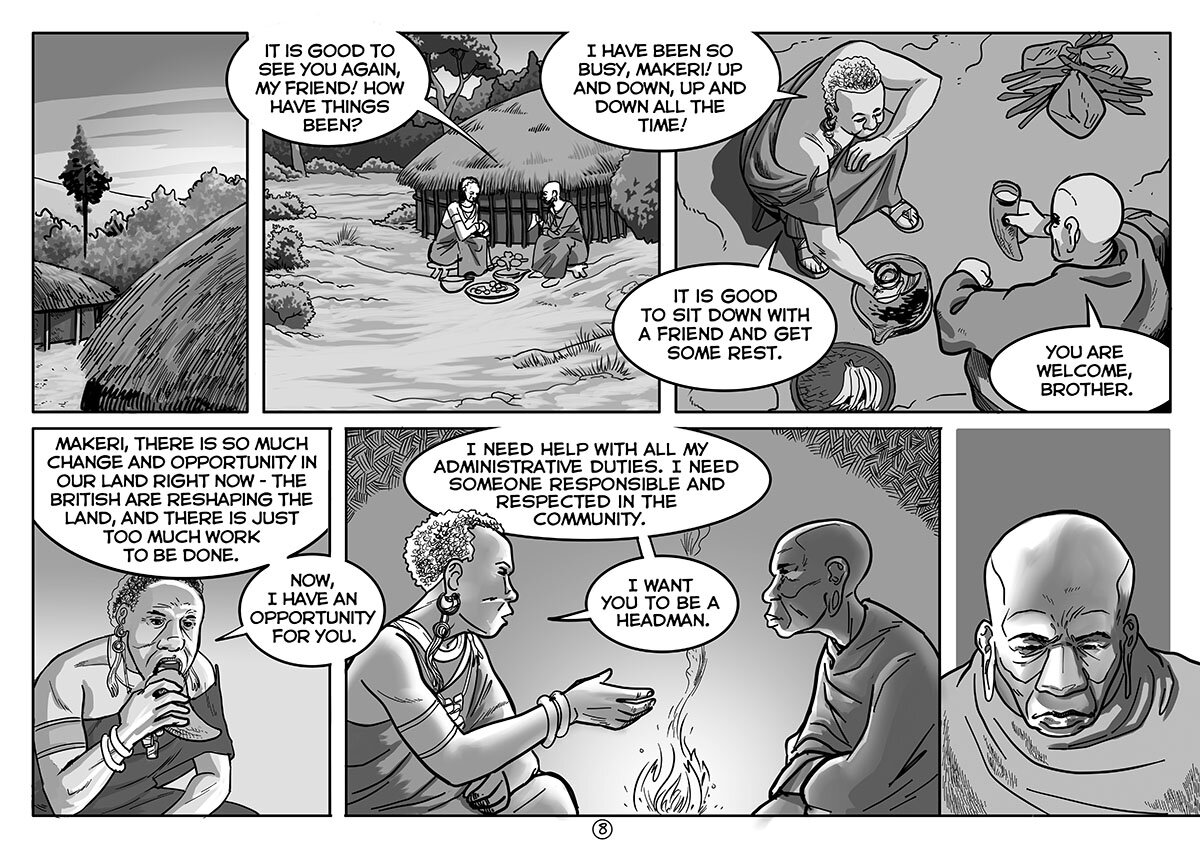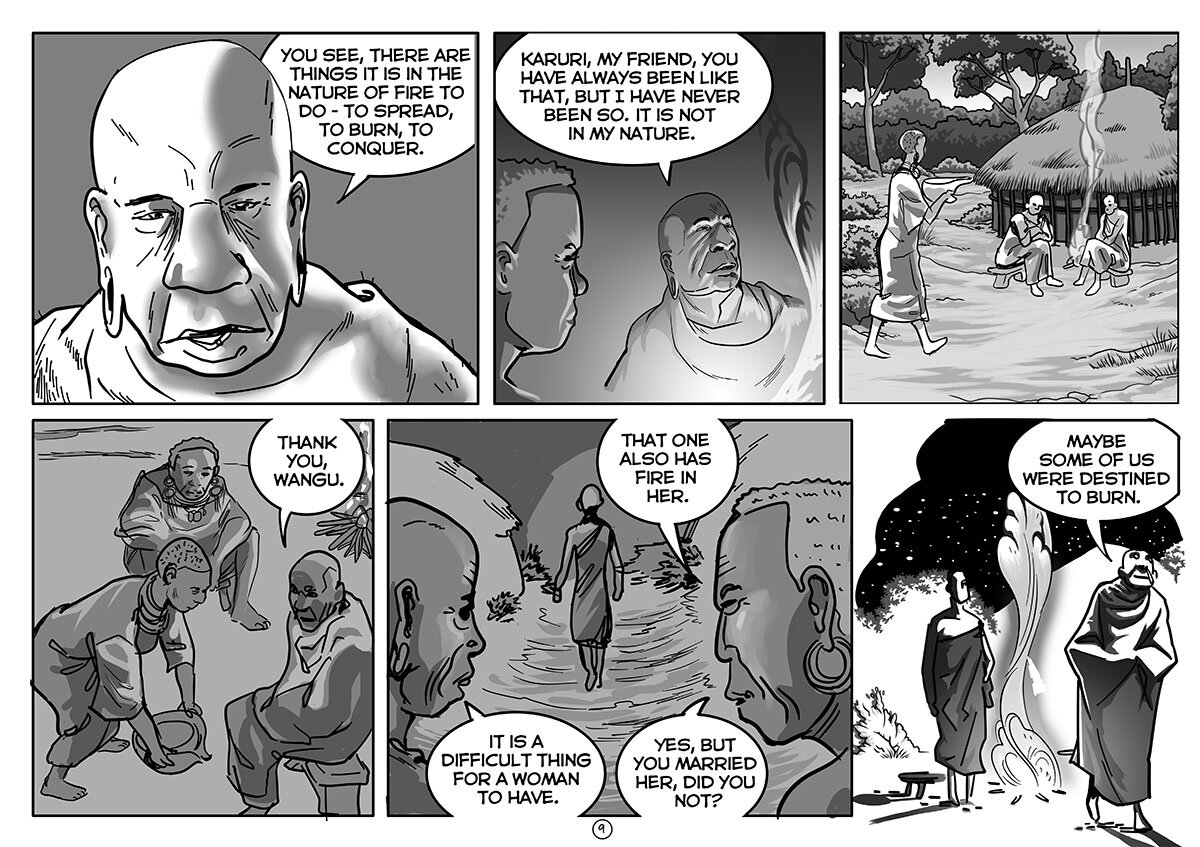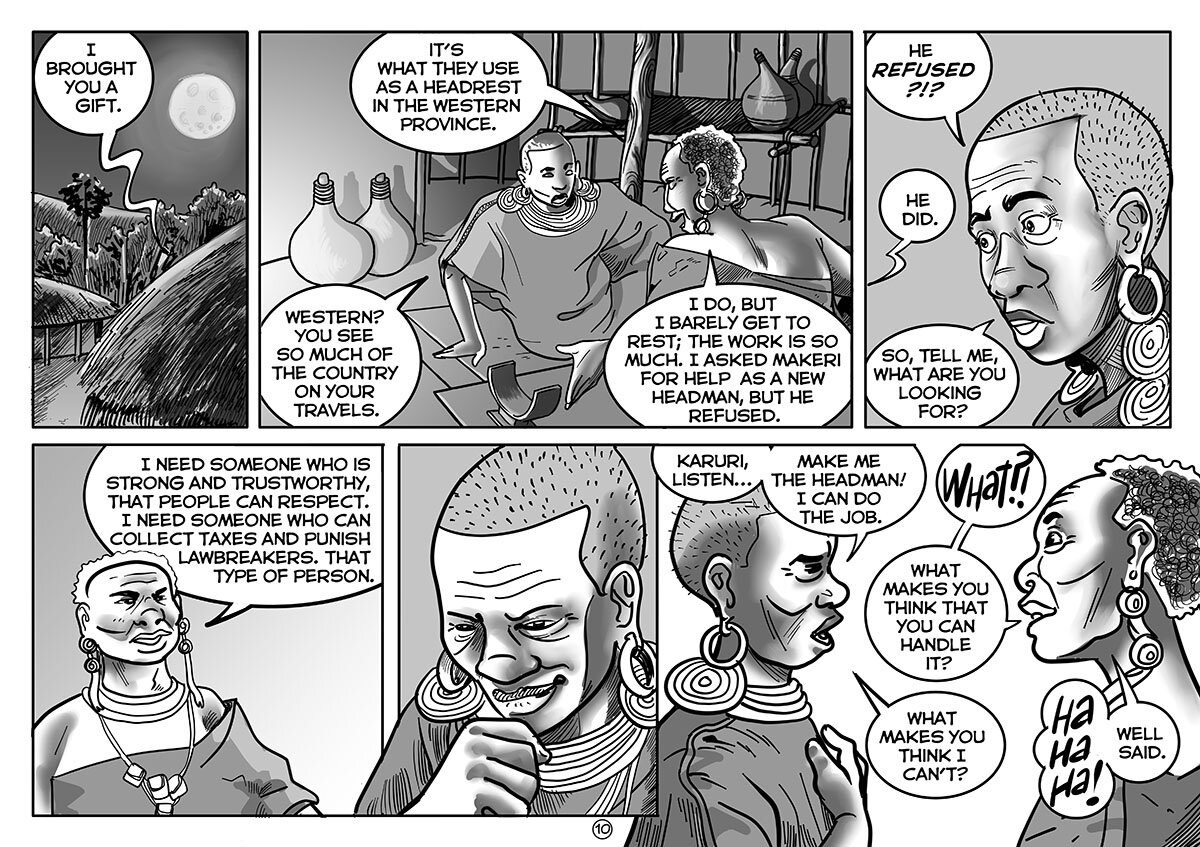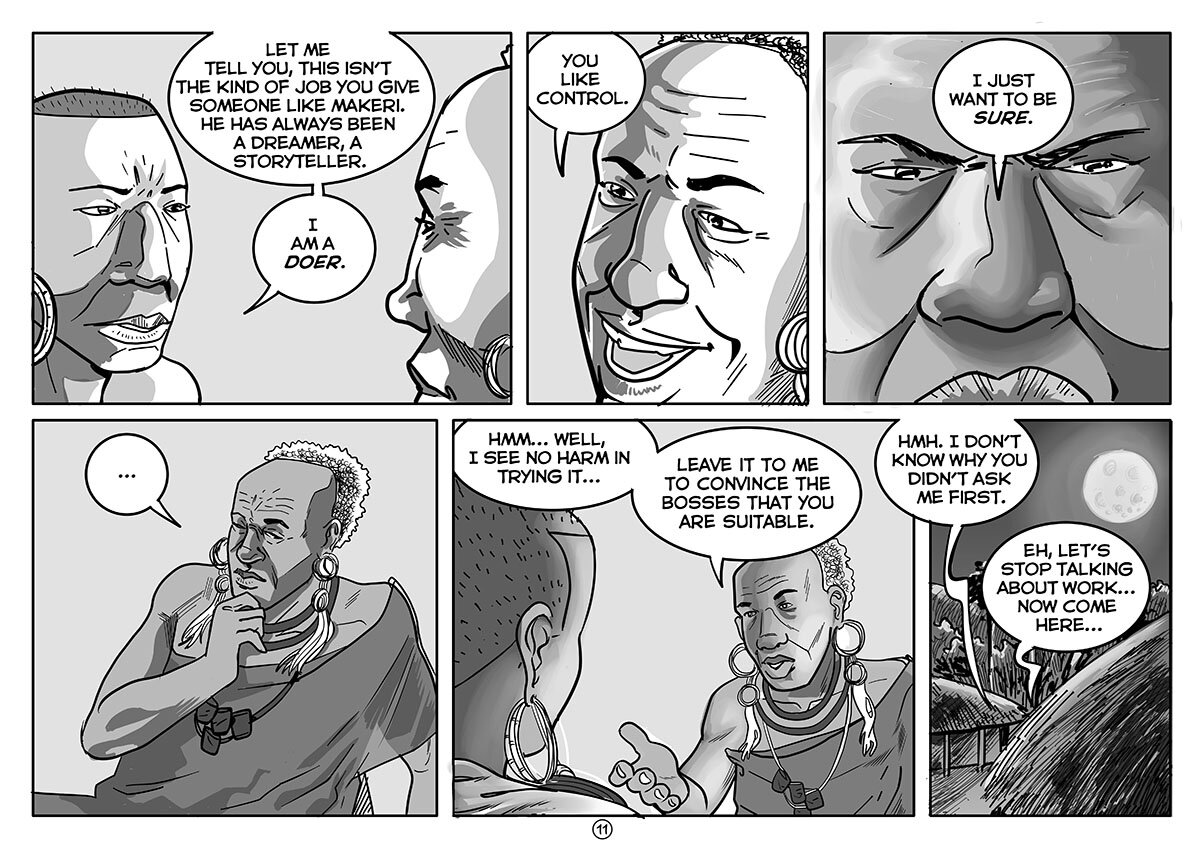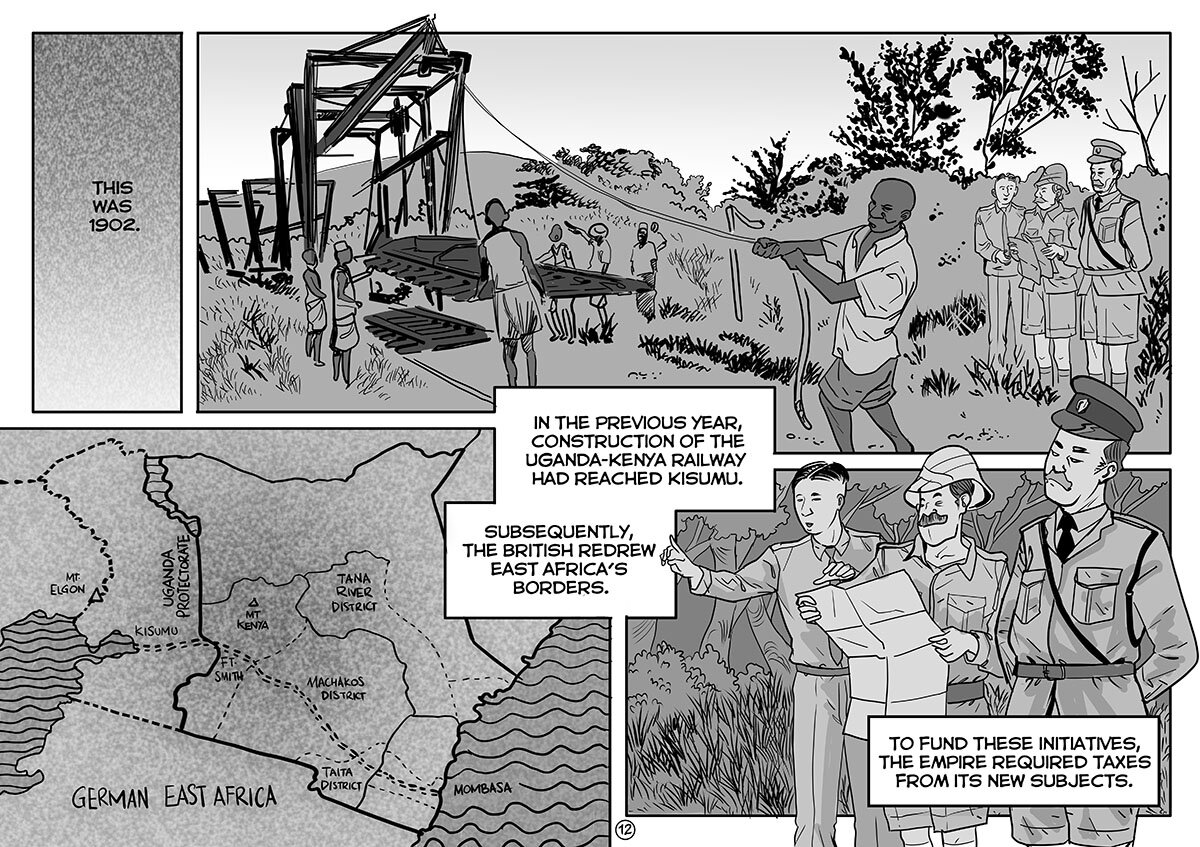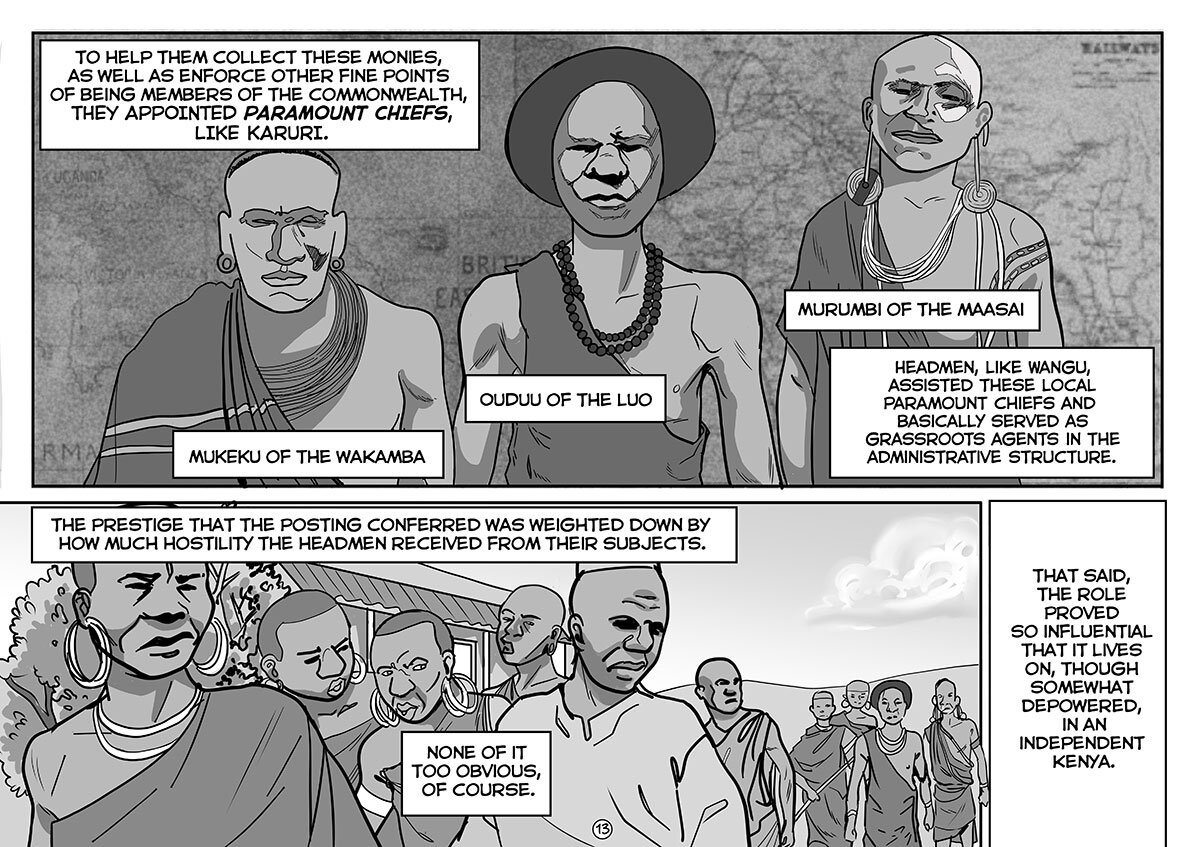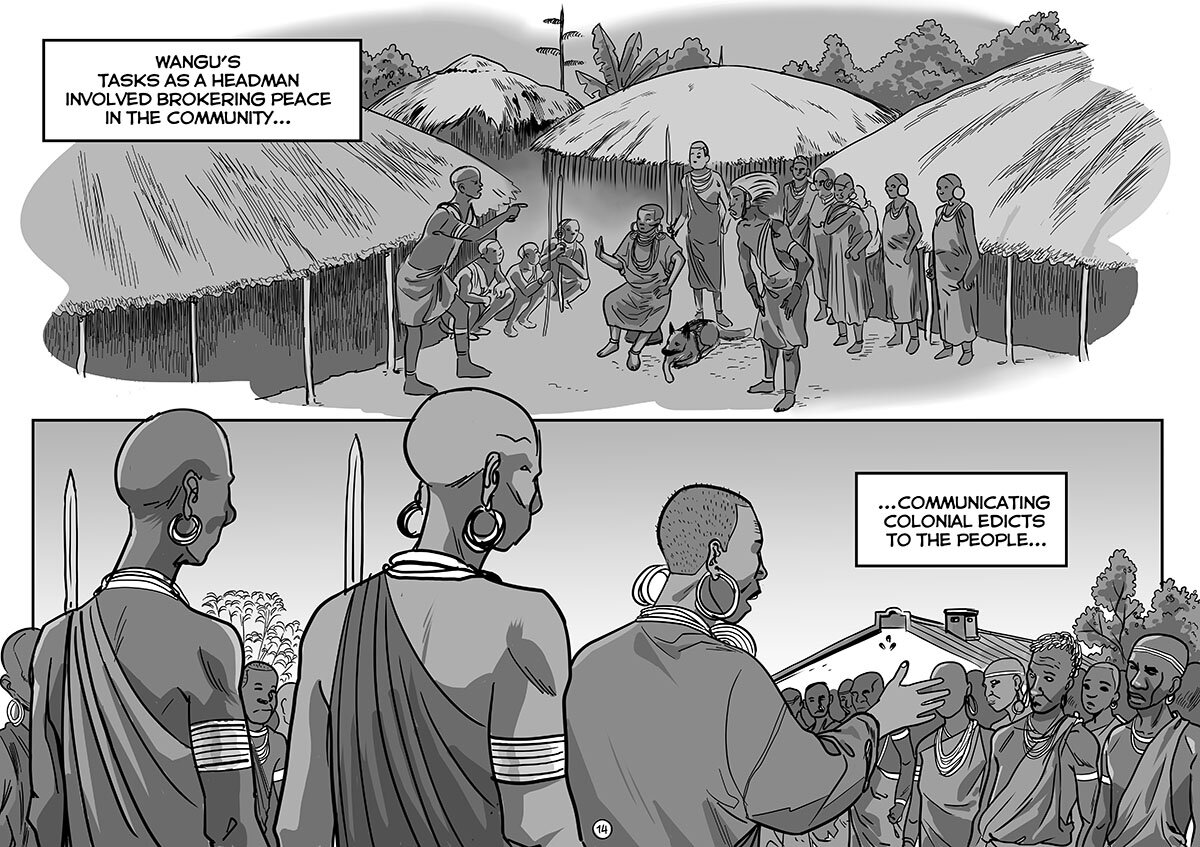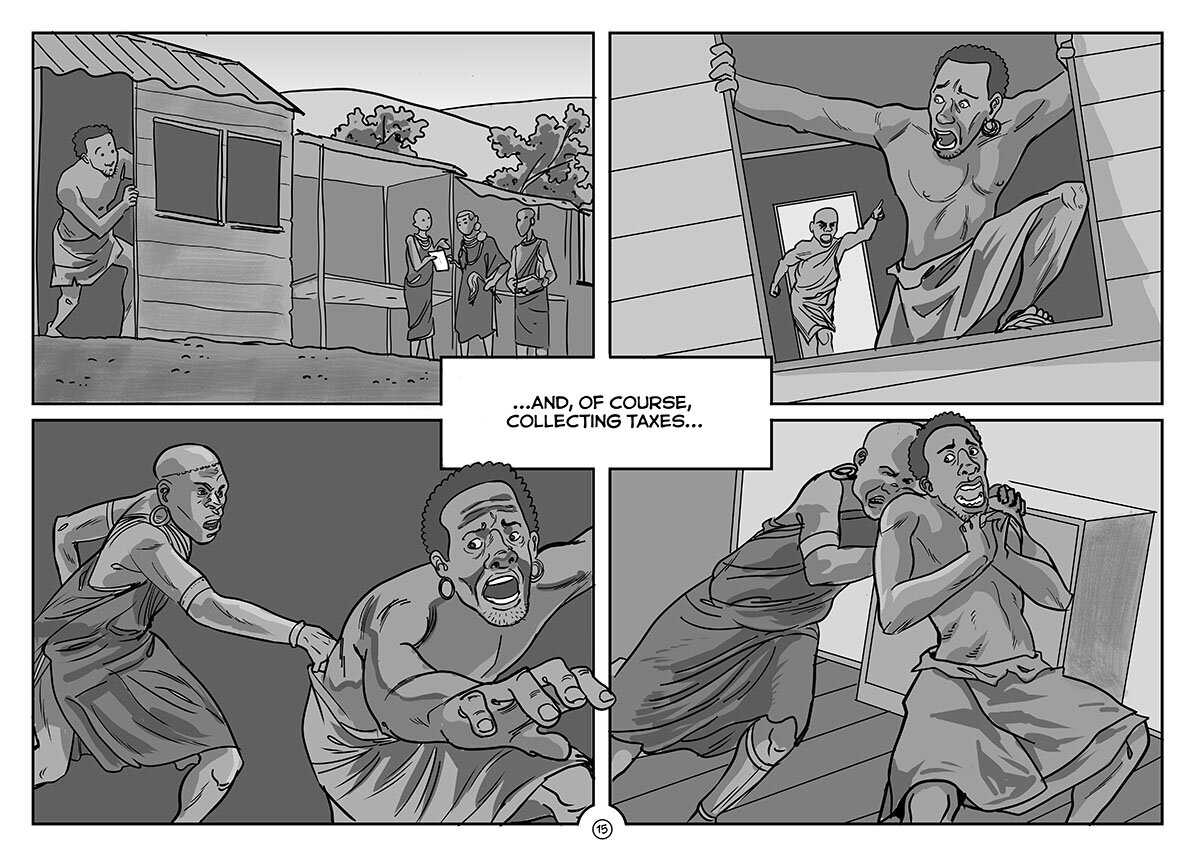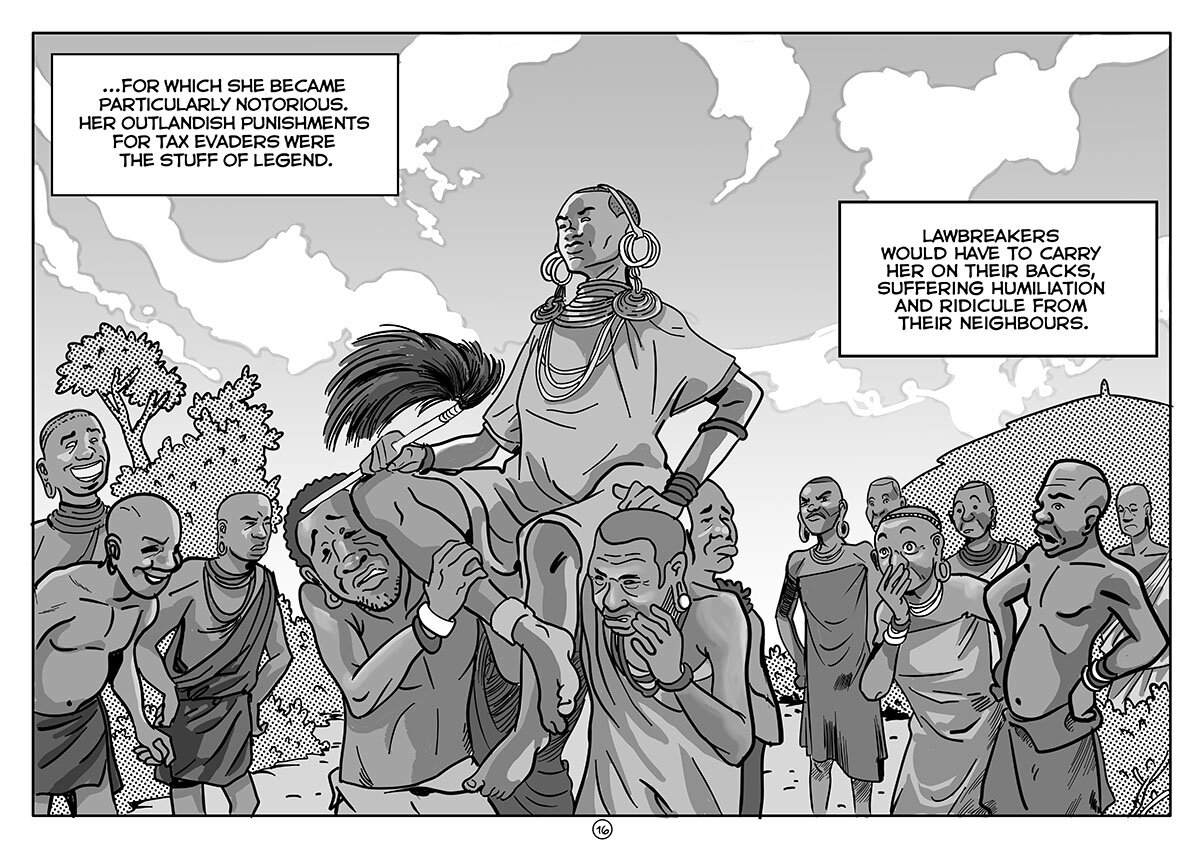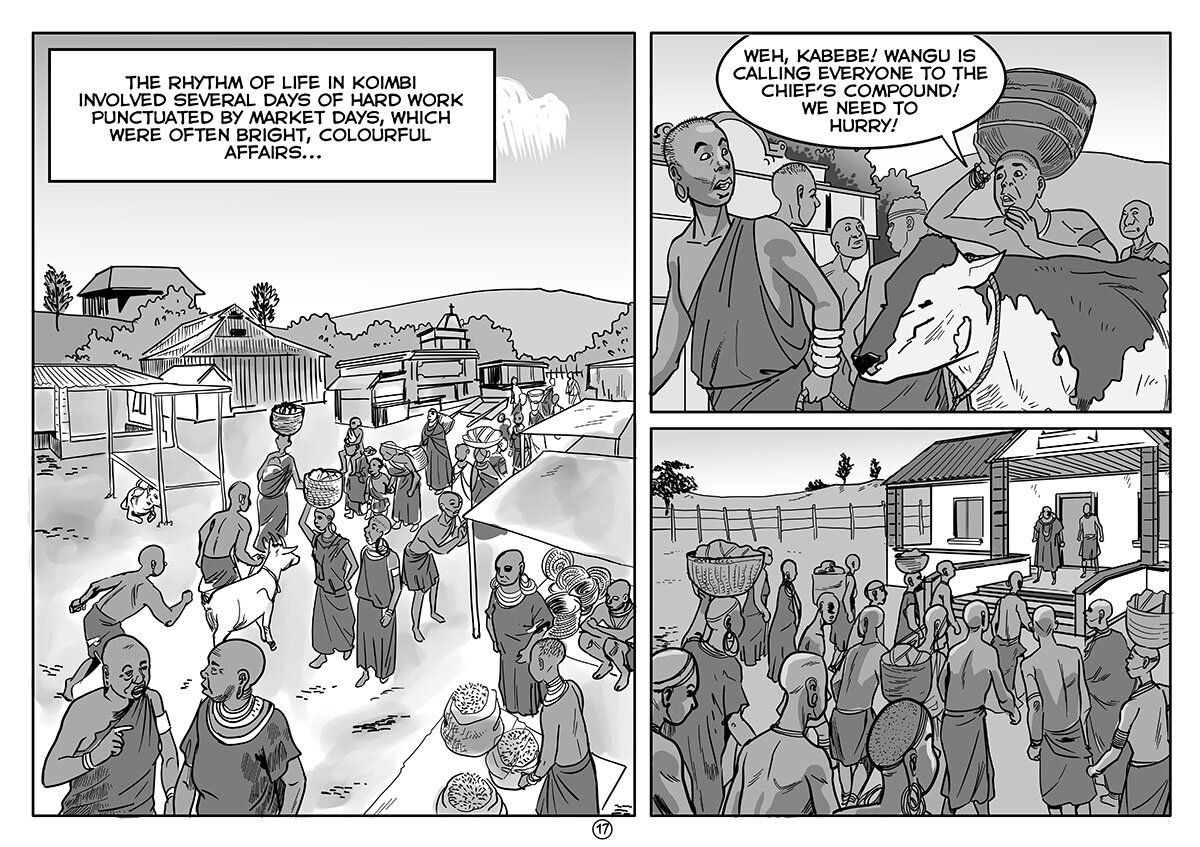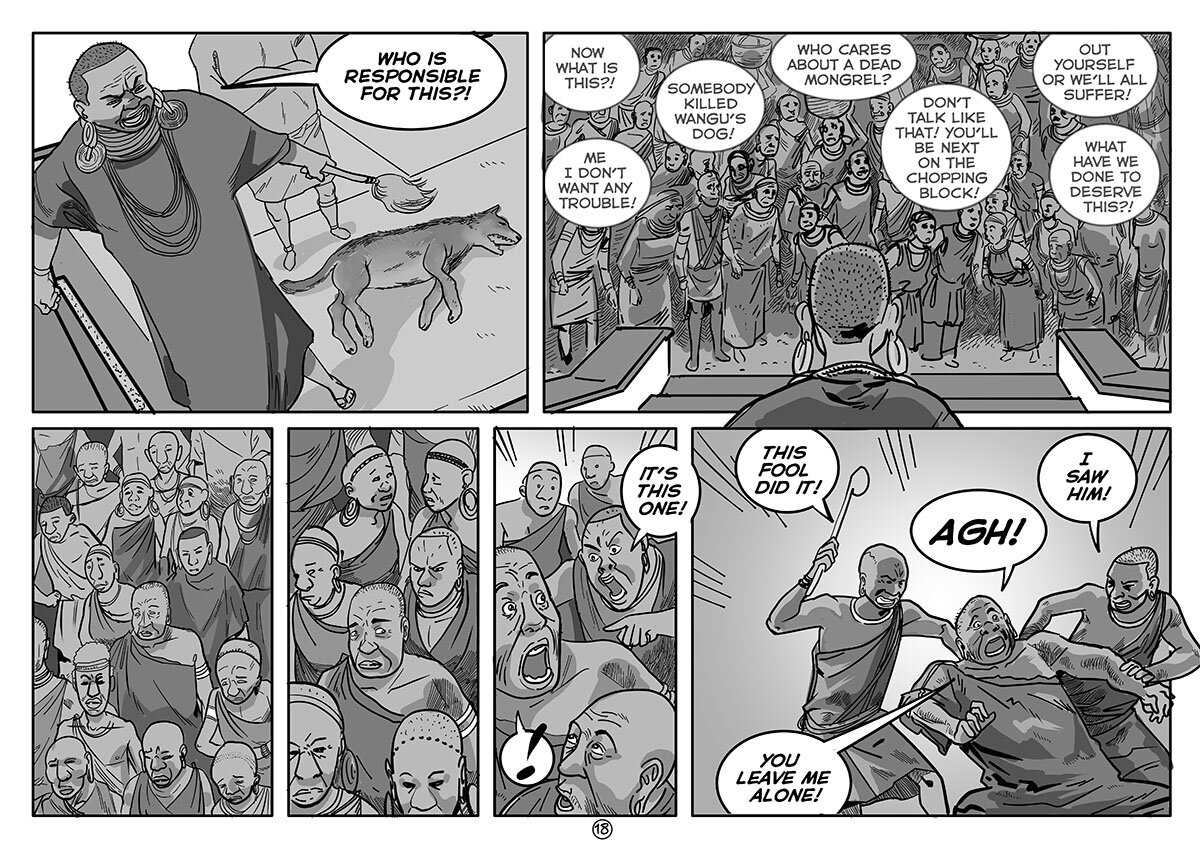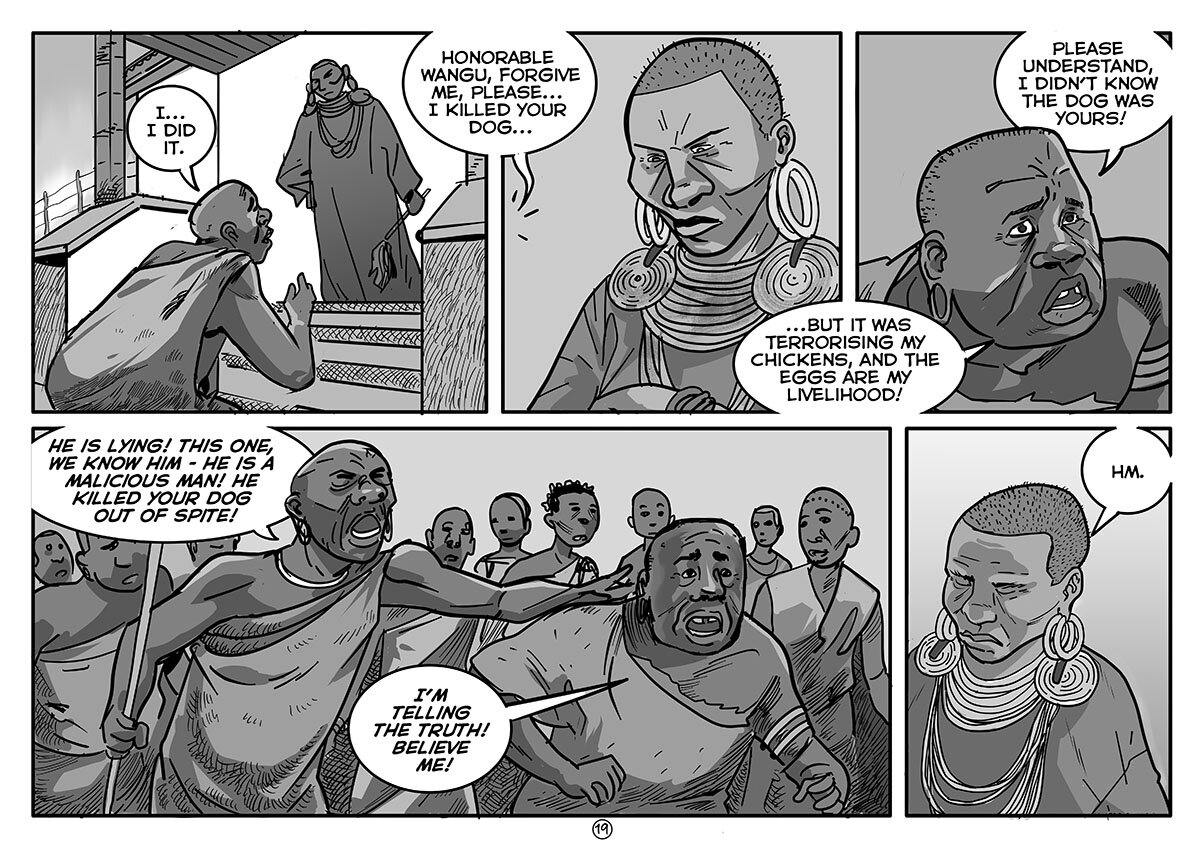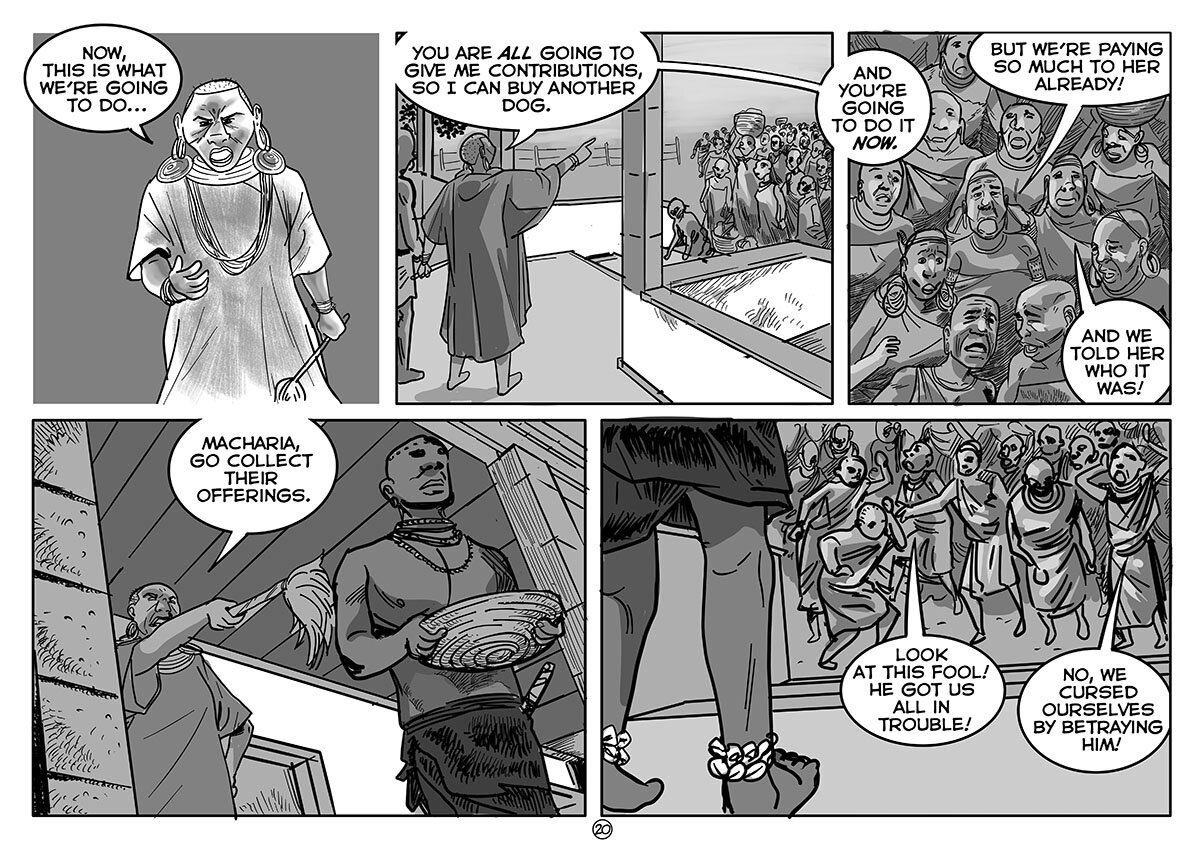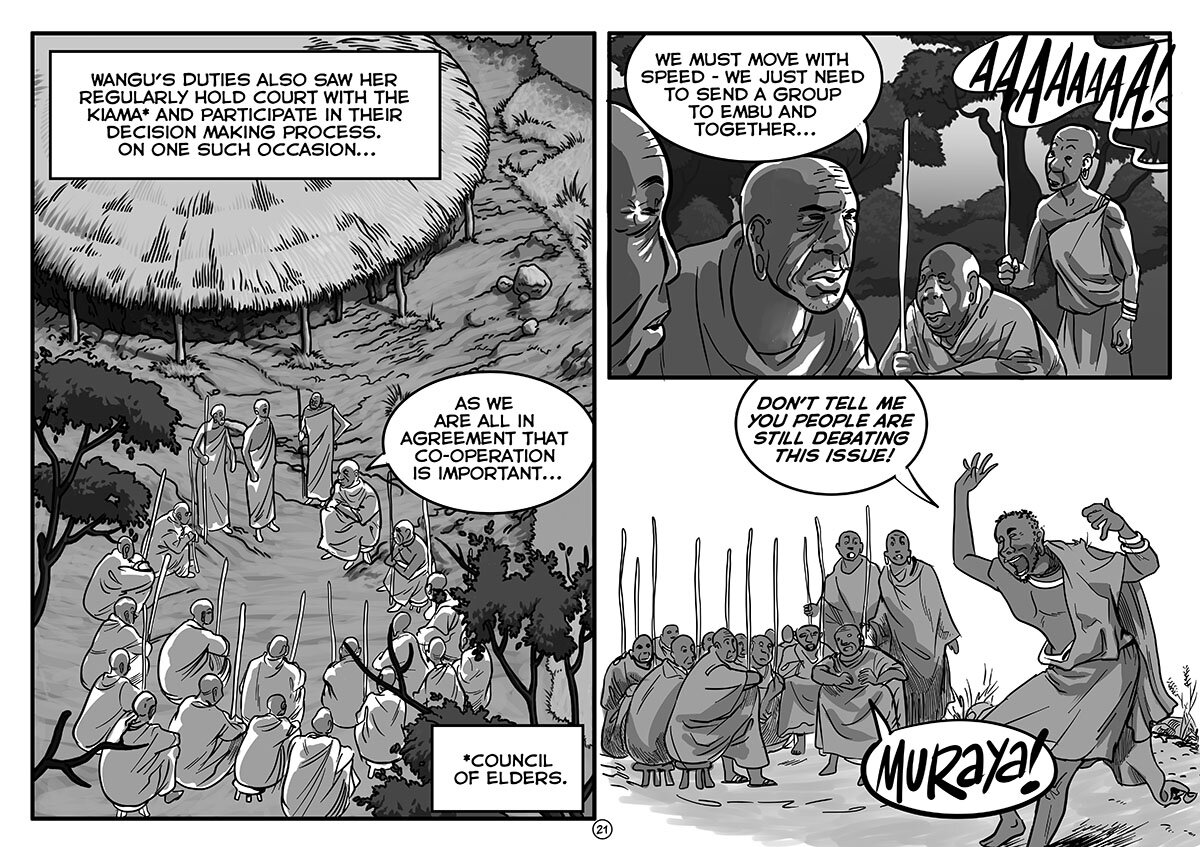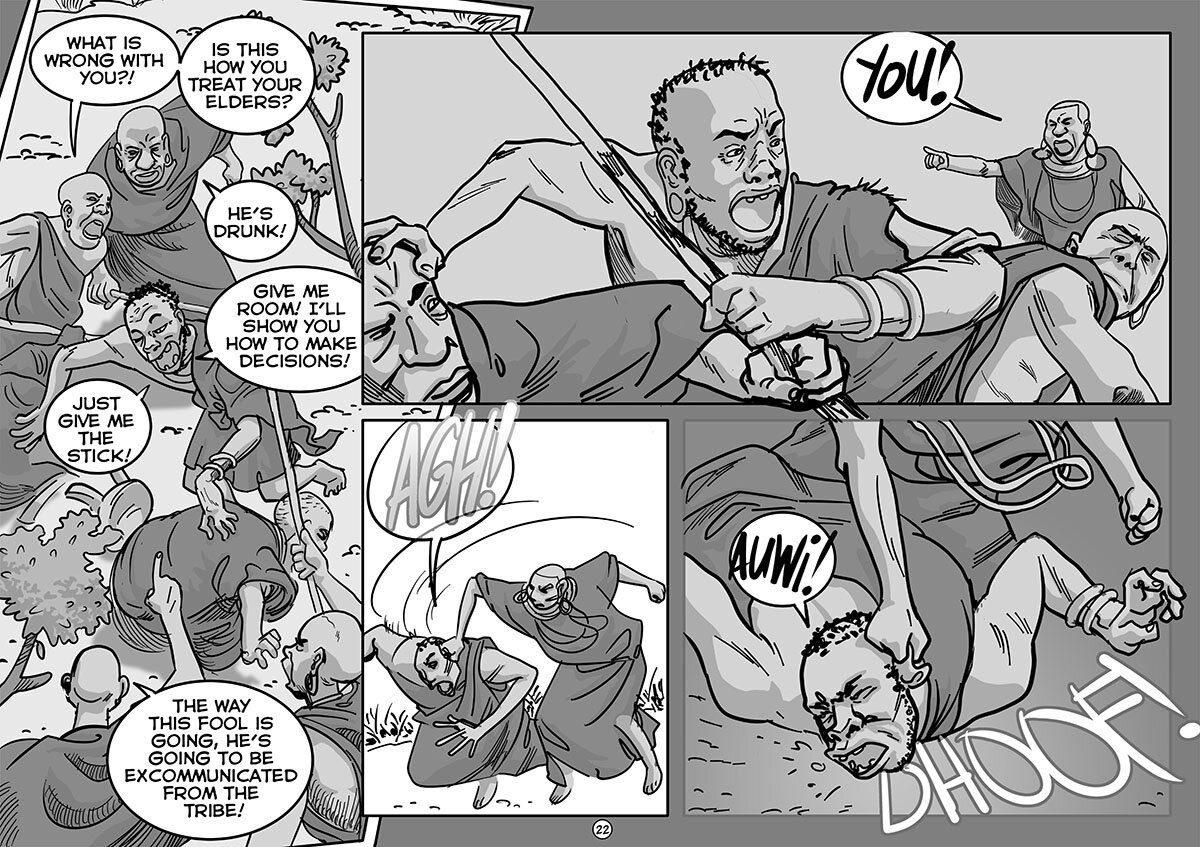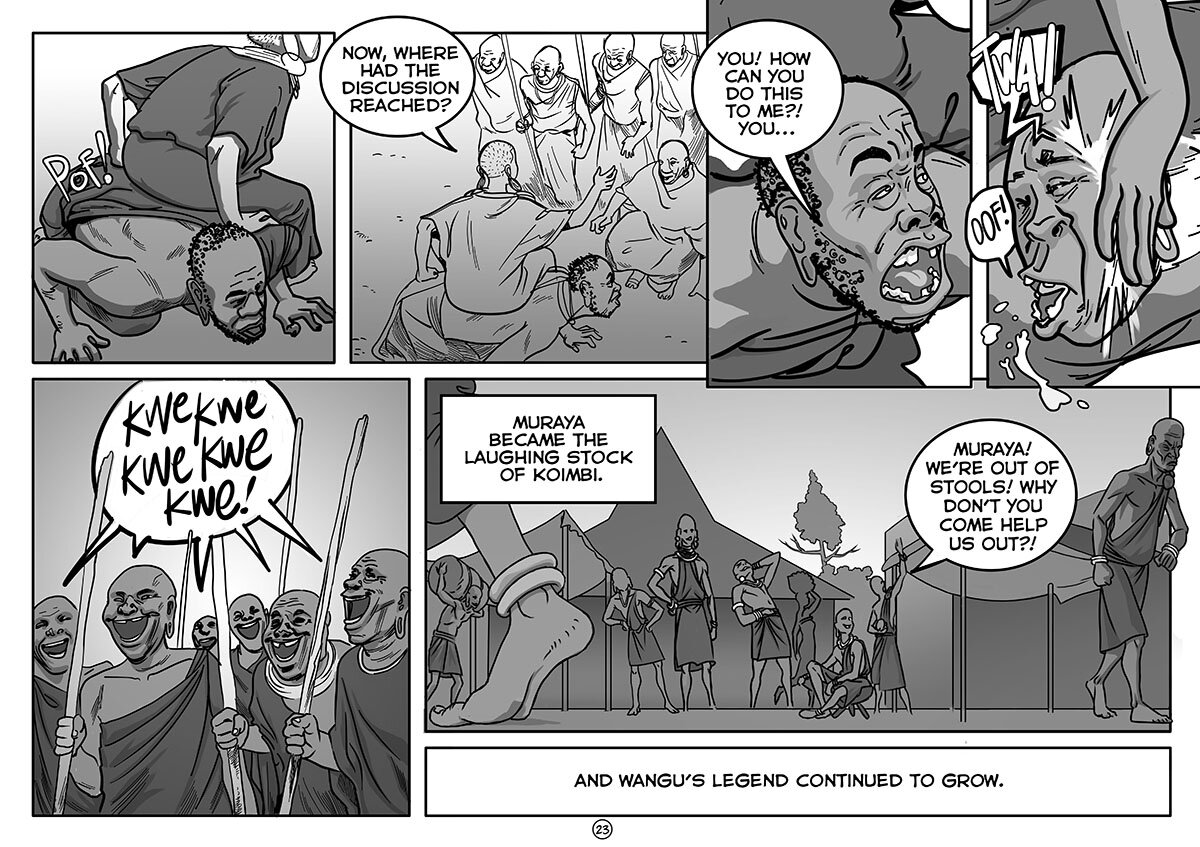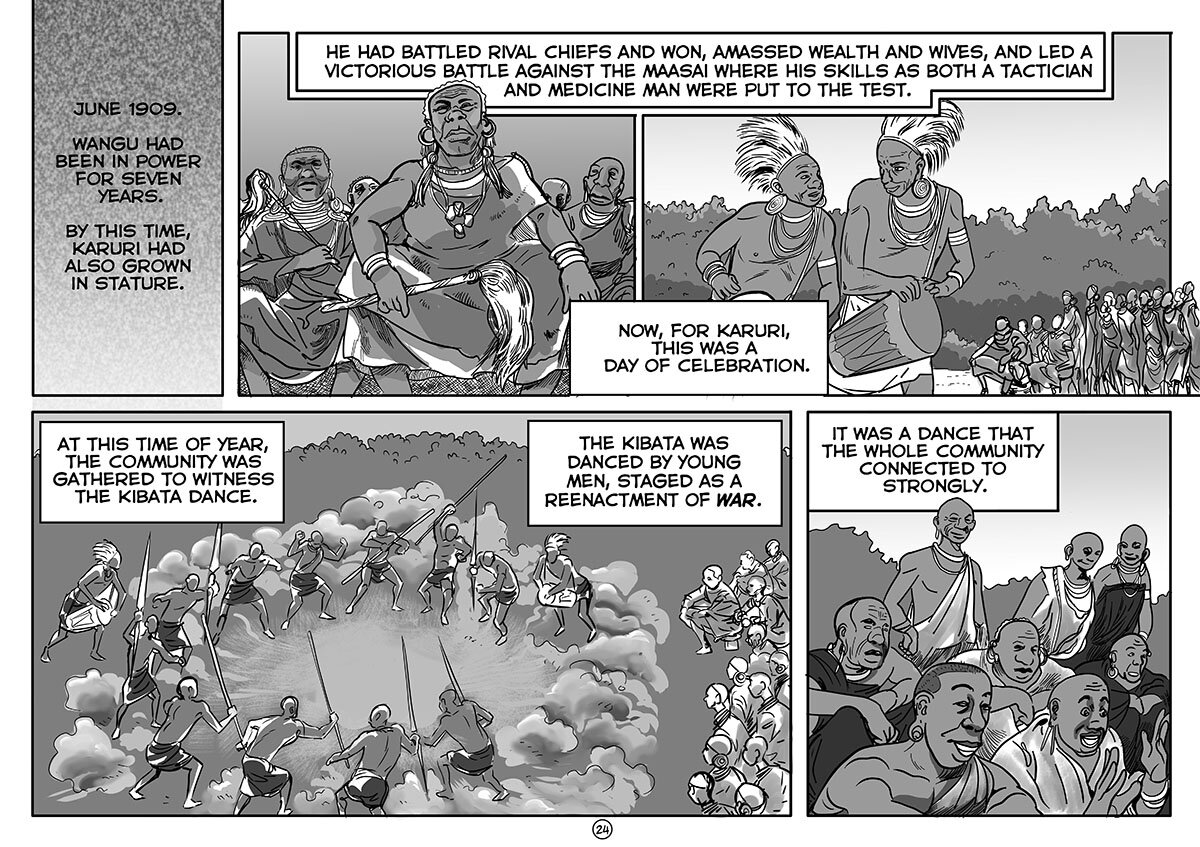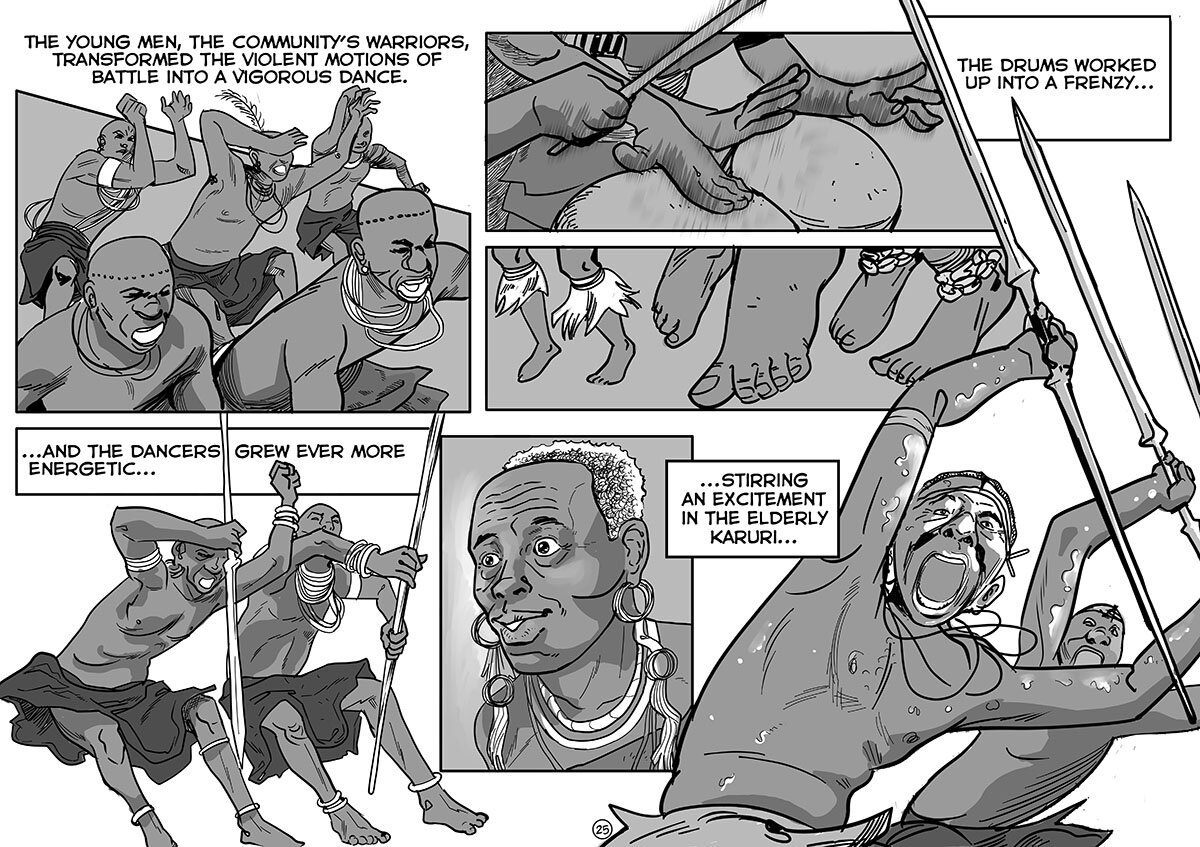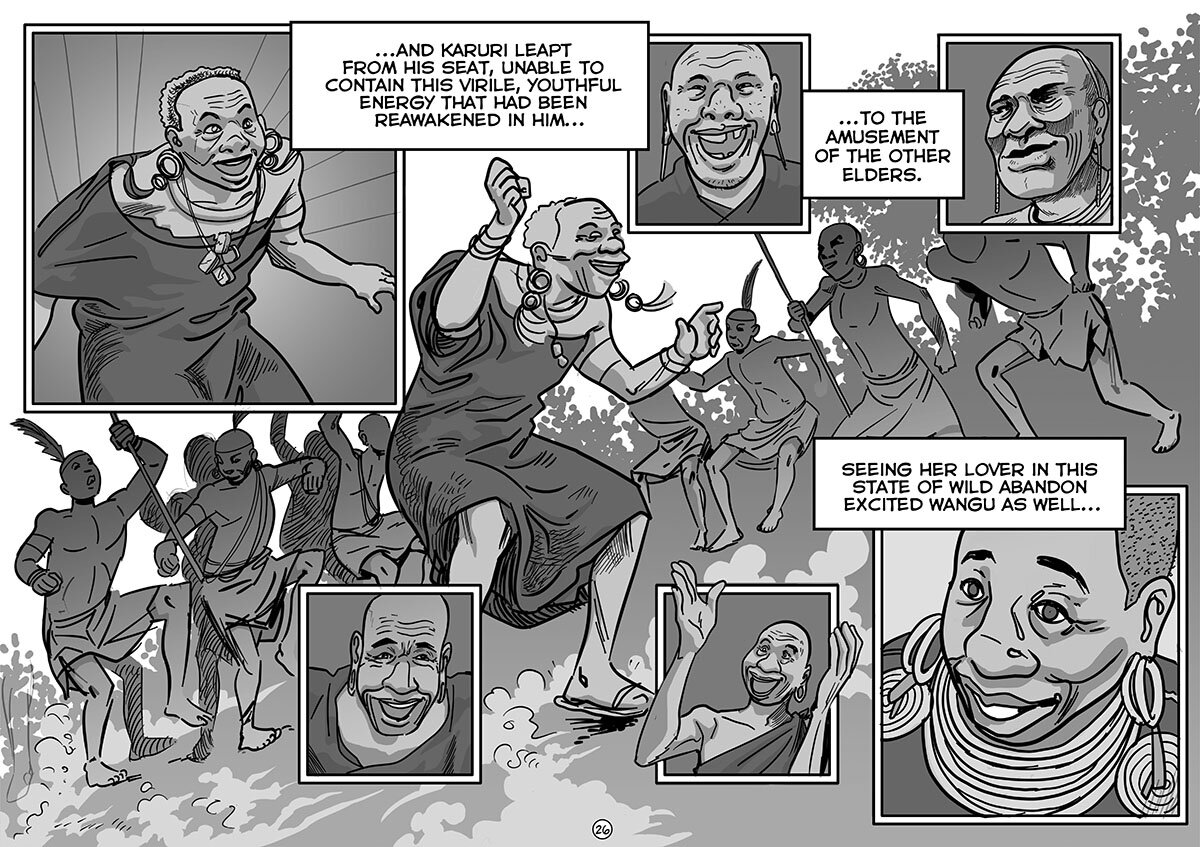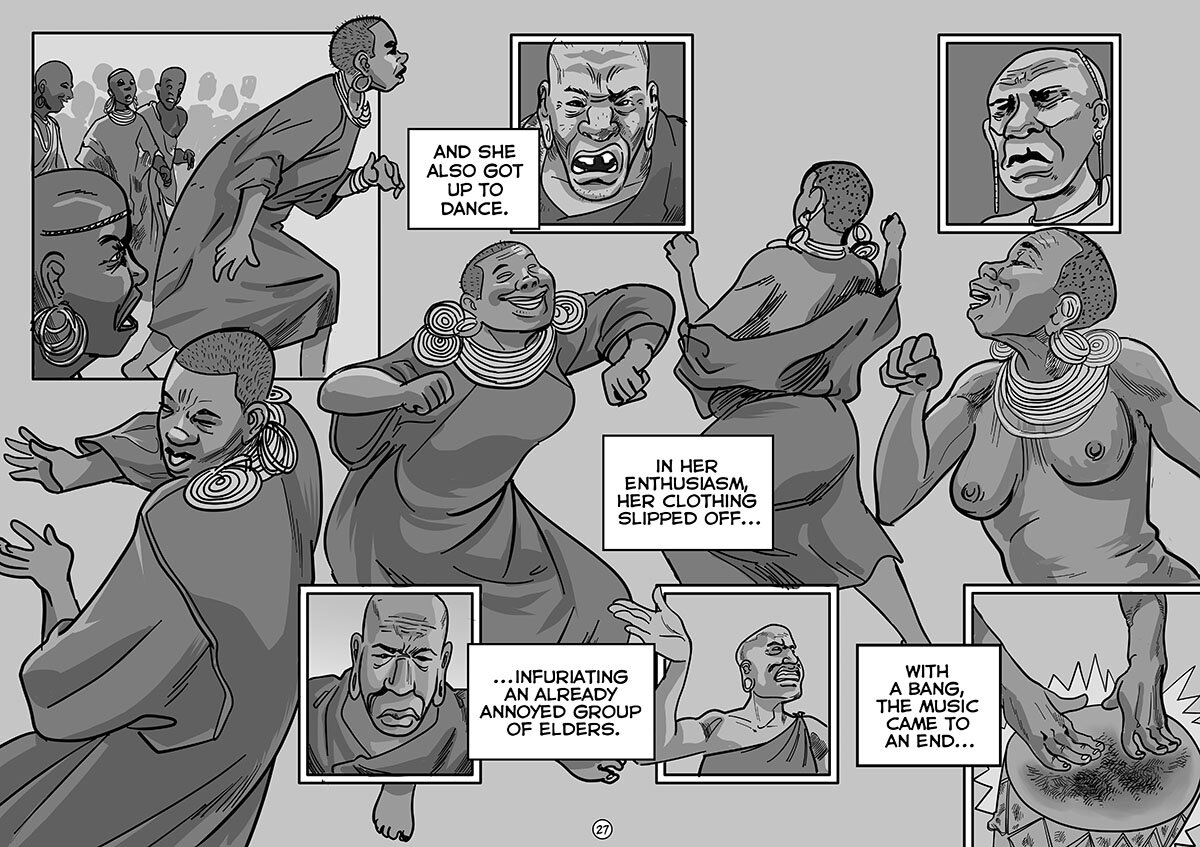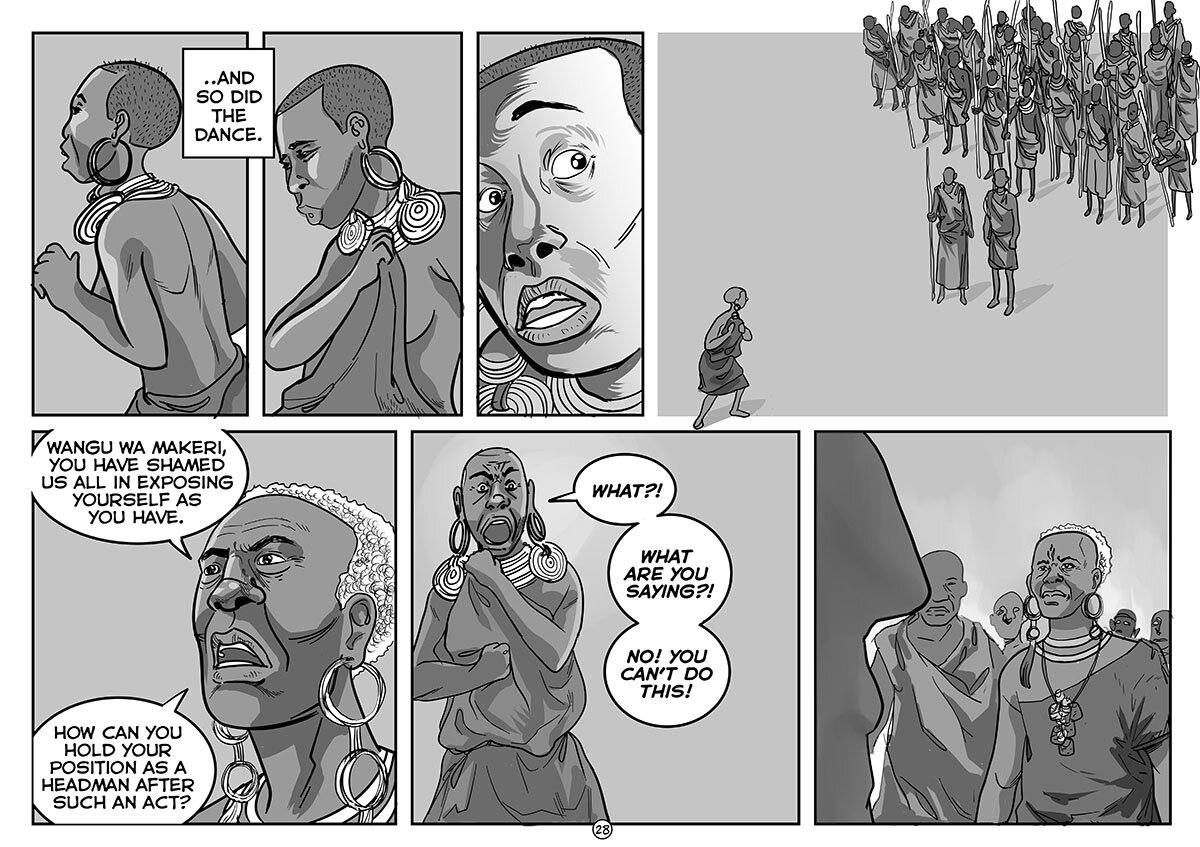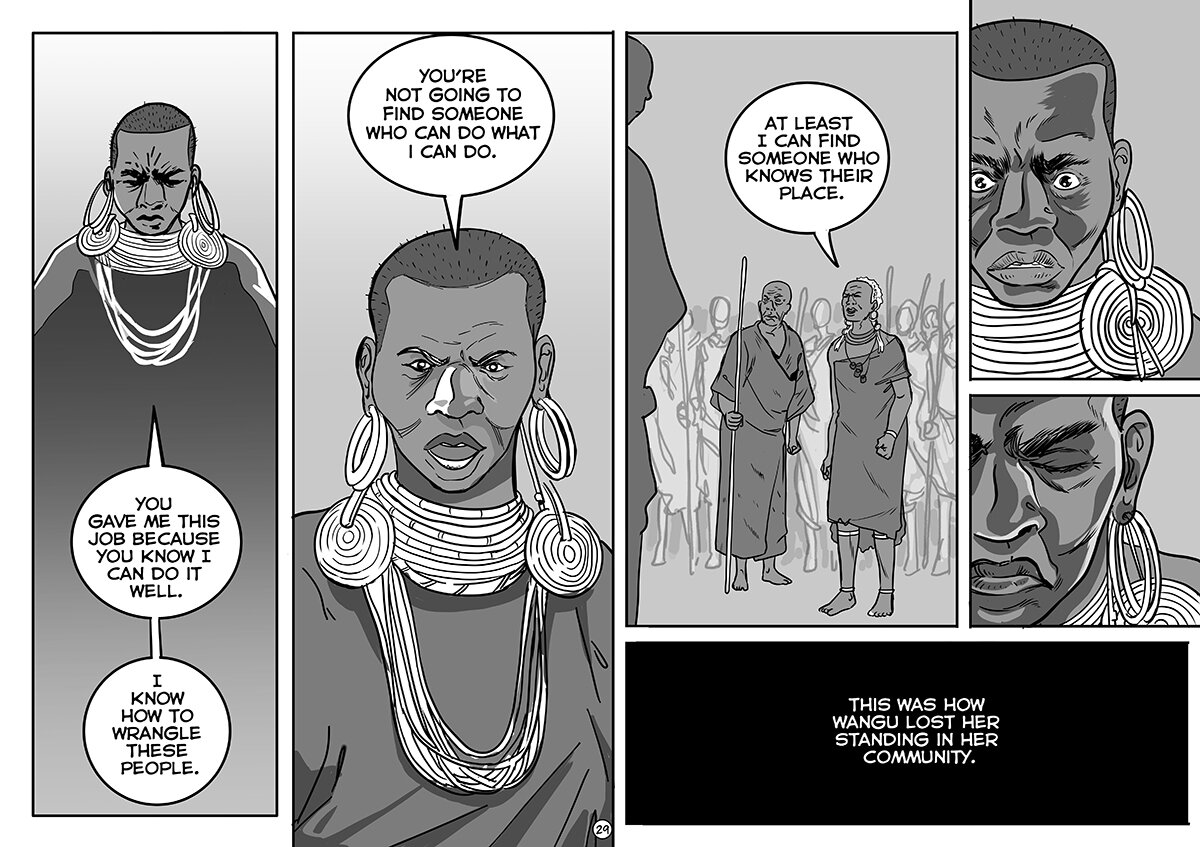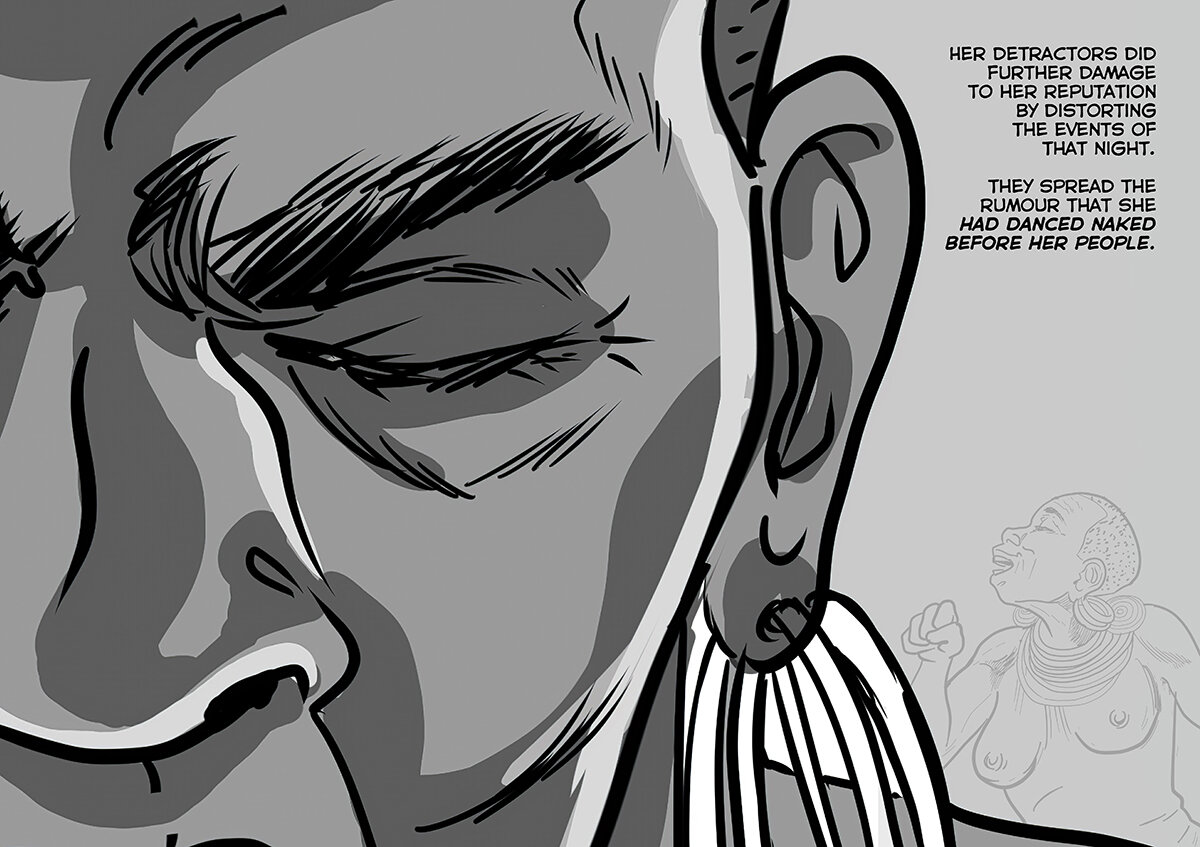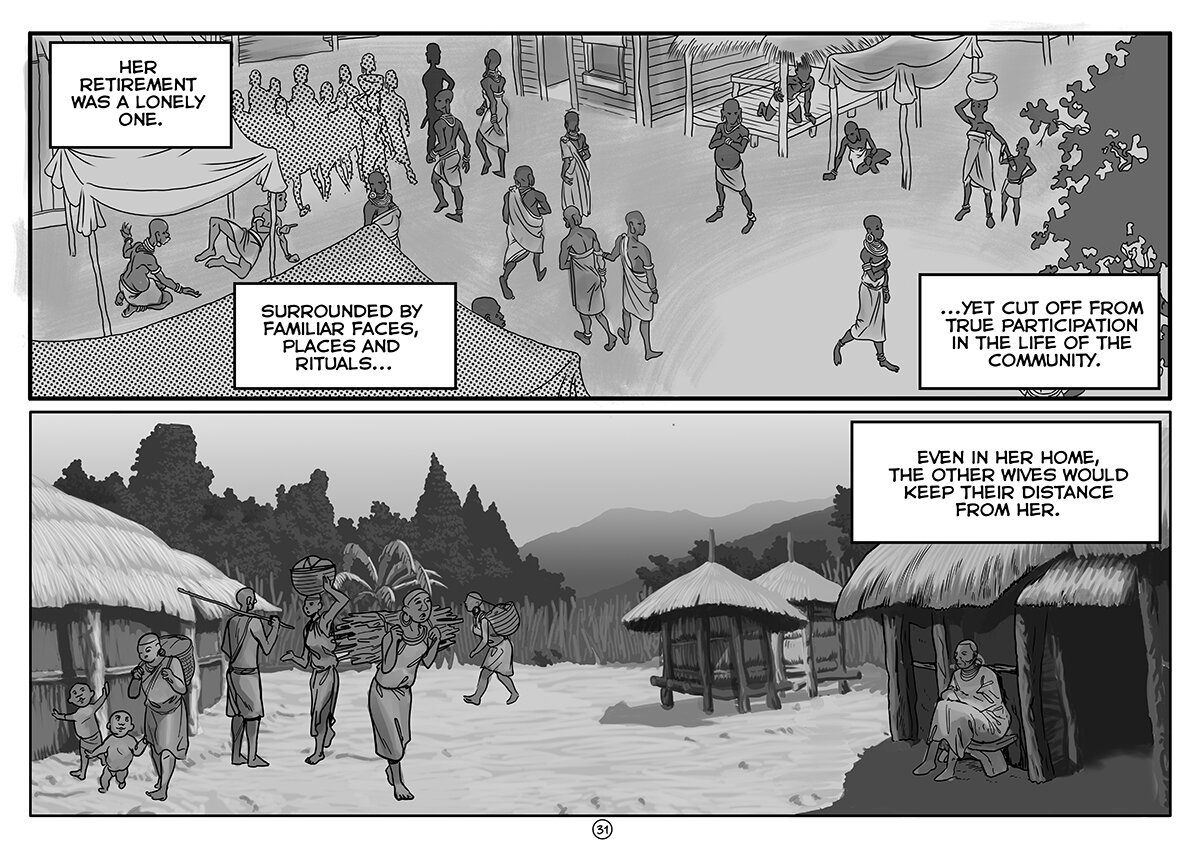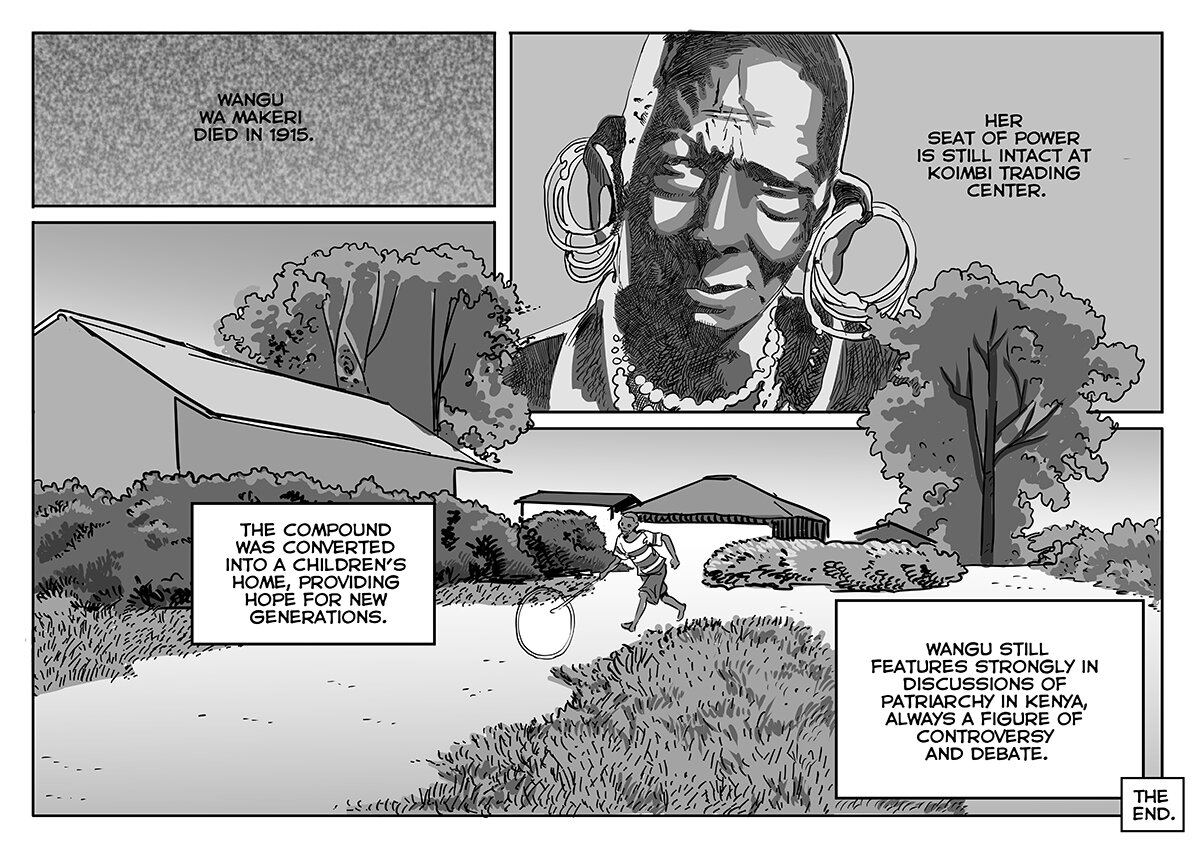Wangu wa Makeri—Colonial Headman and Iron Lady
We are proud to present our first comic book exploration—two stories of Kenyan women and eminent historical figures: Wangu wa Makeri and Mekatilili wa Menza.
Wangu wa Makeri’s exploits were documented as part of colonial record due to her role as a village headman serving the British regime. We chose to explore her story because she is both compelling and difficult. In her role as the quintessential reference for women who are ‘too much’—who behave badly, and who are too public about liking and wielding power—the nuances of her personal life are often missed with the understandable focus on her character flaws and very public fall from grace.
Wangu is very easy to dislike as a story character, considering the ways in which women are expected to be pleasant, well mannered, beyond moral reproach, yielding and submissive. She was however a functional headman, for all intents and purposes, in as far as wielding power and collecting taxes. That can never be read as a good thing, especially by a people suffering the violence of colonisation. And yet, Karuri wa Gakure in history, who literally recruited her for this job and amassed wealth and influence because of his relations with the British, retains a name that Wangu does not.
There remains something elusive about Wangu, about the fear she struck into people’s hearts, and about what she did with the huge influence she had. That is why she doesn’t quite vanish silently into the dust of history as the cautionary tale anyone else would have become.
It is this intangible quality we seek to sit with for a moment in this comic. A feminist retelling must render this honestly, as part of the narratives it belongs to, beyond the mainstream commentary which focuses on the ways she angered her male peers, whose humiliations are carried into popular discourse in the present day. It is likely going a little too far to project that Wangu herself was a feminist. She must have believed to some extent that women can do what men can, otherwise she wouldn’t have taken the reins of power. But she also clearly used her people to benefit off the colonial power structures of her day. Like the person herself, her story is a challenging one to reflect on in its entirety.
We remain grateful to our partners in this project, the Urgent Action Fund-Africa, and the Oxfam Enough Campaign Africa; to the authors, uploaders, owners and keepers of the numerous online and offline articles, books, and reference images that gave us the skeletons we needed to build these women’s stories; to Dr. Joyce Nyairo for her detailed editorial notes; and especially to artists Daniel Muli and Ray Gicharu for making this narrative possible. Thanks also go to Patrick Gathara for corrections made on page 13.Note: for younger readers, parental guidance is advised for some scenes that include nudity and violence.
Project credits
Written, edited and published by the Nest Collective
Project lead: Dr. Njoki Ngumi
Illustrated by Daniel Muli
Assisted by Ray Gicharu
with kind support from Urgent Action Fund-Africa and the Oxfam Enough Campaign Africa
Read Mekatilili wa Menza—Freedom Fighter and Revolutionary, the companion comic story to this one.


